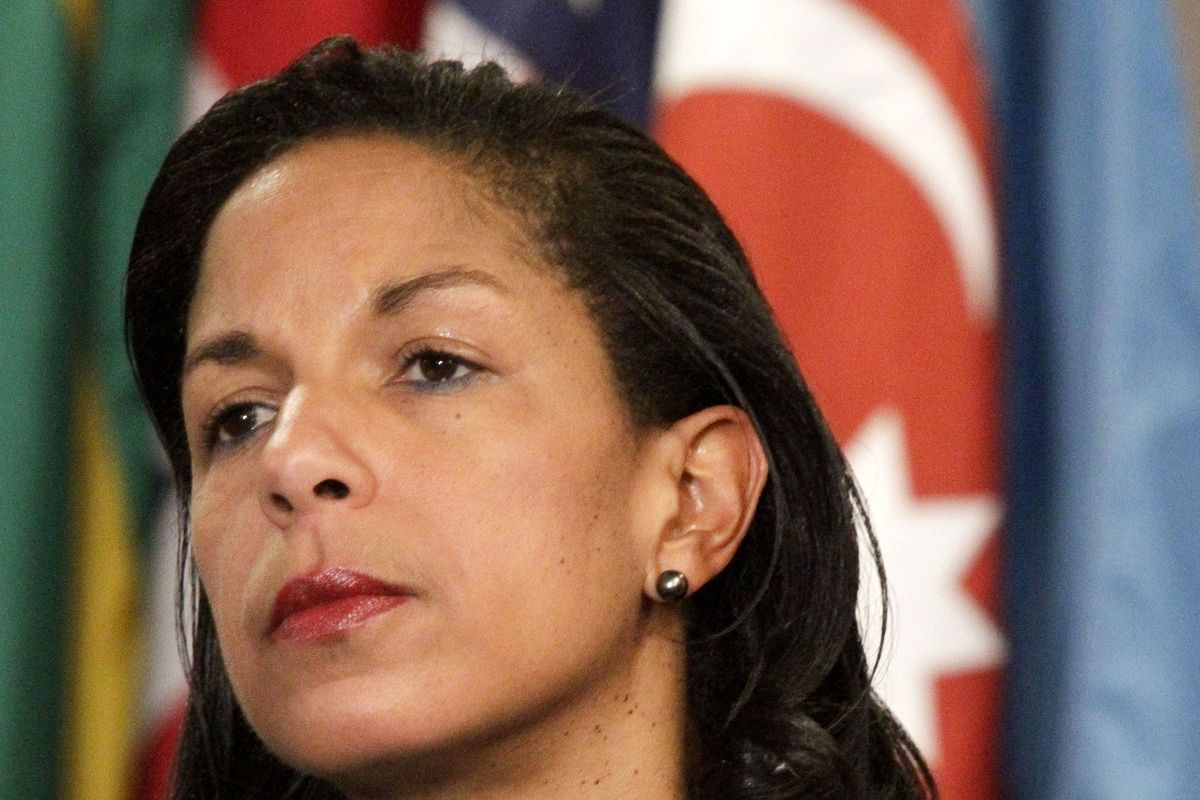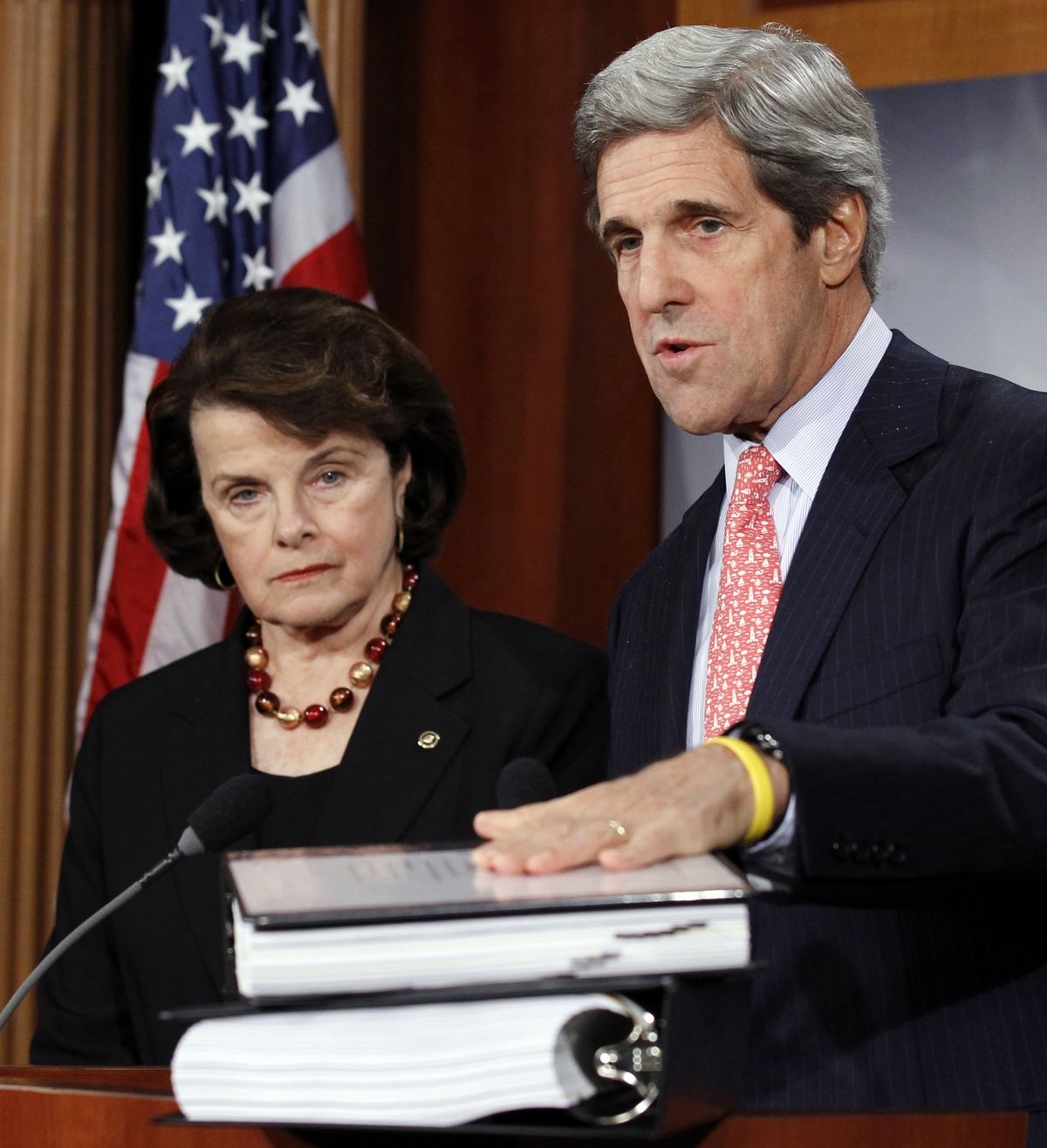Rice won’t pursue Secretary of state
John Kerry likely to be front-runner for Clinton’s post
Susan Rice won’t take on battle for post.
WASHINGTON – President Barack Obama dropped embattled U.N. envoy Susan Rice from consideration as his next secretary of state, signaling the start of a broad reshuffling of his Cabinet and senior staff.
Bowing to a barrage of criticism by Republican members of Congress of Rice’s response after armed militants overran a U.S. diplomatic mission in Benghazi, Libya, Obama said Thursday he had agreed to her request to withdraw her name from consideration.
Obama said he “deeply regret(s) the unfair and misleading attacks” on Rice, and he praised his ambassador to the U.N. as “an extraordinarily capable, patriotic and passionate public servant.”
The decision marked a personal defeat for Obama, who had defended Rice repeatedly in recent weeks. Rice has been a pillar of Obama’s inner circle since she joined his 2008 presidential campaign.
At his first post-election press conference, Obama had directly challenged her Republican critics. “When they go after the U.N. ambassador apparently because they think she’s an easy target, then they’ve got a problem with me,” he said.
But Rice faced waning political support on Capitol Hill, and Obama’s aides weighed whether contentious confirmation hearings would undercut other priorities at the start of his second term. While it appeared the White House had the votes to cut off a filibuster in the Senate and win confirmation, the fight could have dragged on for weeks, and could have damaged her effectiveness as secretary of state.
The decision leaves Sen. John Kerry, D-Mass., who heads the Senate Foreign Relations Committee, as leading contender to replace Hillary Rodham Clinton after she steps down early next year. That, in turn, would require a special election in Massachusetts and likely give Scott Brown, a moderate Republican who lost his Senate seat to Democrat Elizabeth Warren in November, another chance to run.
White House aides said the president is considering three possibilities to replace Leon Panetta as secretary of defense.
They include Chuck Hagel, a Republican who is a former U.S. senator from Nebraska; Deputy Defense Secretary Ashton Carter; and Michelle Flournoy, who was the highest-ranking woman at the Pentagon for most of the first Obama administration.
In a letter to Obama, Rice explained her decision by noting that confirmation hearings “would be lengthy, disruptive and costly – to you and to our most pressing national and international priorities. That tradeoff is simply not worth it to our country.”
One former administration official said Rice was in direct communication with Obama staffers, but was not forced to pull out by the White House.
“She made this decision on her own over the past couple of days,” said a second source. “It became clear this was not going away.”
Obama made clear Rice would remain in his inner circle, saying he was grateful she would stay as “our ambassador at the United Nations and a key member of my Cabinet and national security team.”
Rice may end up close to Obama’s side in another way, as his national security adviser should Tom Donilon move on to another position, though that is not expected imminently. The security adviser position would not require Senate confirmation.
Rice drew heavy flak from Republican lawmakers after she appeared on several Sunday TV talk shows five days after armed militants stormed a U.S. diplomatic mission in Benghazi in eastern Libya on Sept. 11, and killed U.S. Ambassador Christopher Stevens and three other Americans.
Although Rice relied on so-called talking points given to her by the CIA, a growing number of Republicans said she had falsely described the attacks as spontaneous protests and not a calculated act of terror by Libyan extremists. Critics said she had tried to downplay the nature of the attacks to protect Obama during his re-election campaign.
Rice later agreed that her statements were incorrect, but blamed misinformation given to her by the intelligence community. It did little to stanch the criticism, however.
The Republican reaction was unrelenting when the White House circulated Rice’s name as a possible candidate last month. Sens. John McCain, R-Ariz., and Lindsey Graham, R-S.C., and others said they would work actively against her candidacy because of the Benghazi episode. Other questions were raised about her investments overseas.
Aides said the White House at first hoped they could wait out the furor. But as weeks passed, it did not subside, and they began to worry that they needed to start filling other national security posts without much more delay.
Kerry, known to be very interested in the State Department job, was a reliable ally of Obama during the first term, helping the administration in overseas missions to Syria, Afghanistan and other trouble spots.
Hagel, who has reportedly visited the White House in recent days, may be a more controversial choice. Some Republicans quickly began taking aim at Hagel for statements that they consider show a weak commitment to Israel and a reluctance to go to war with Iran over its nuclear program.

